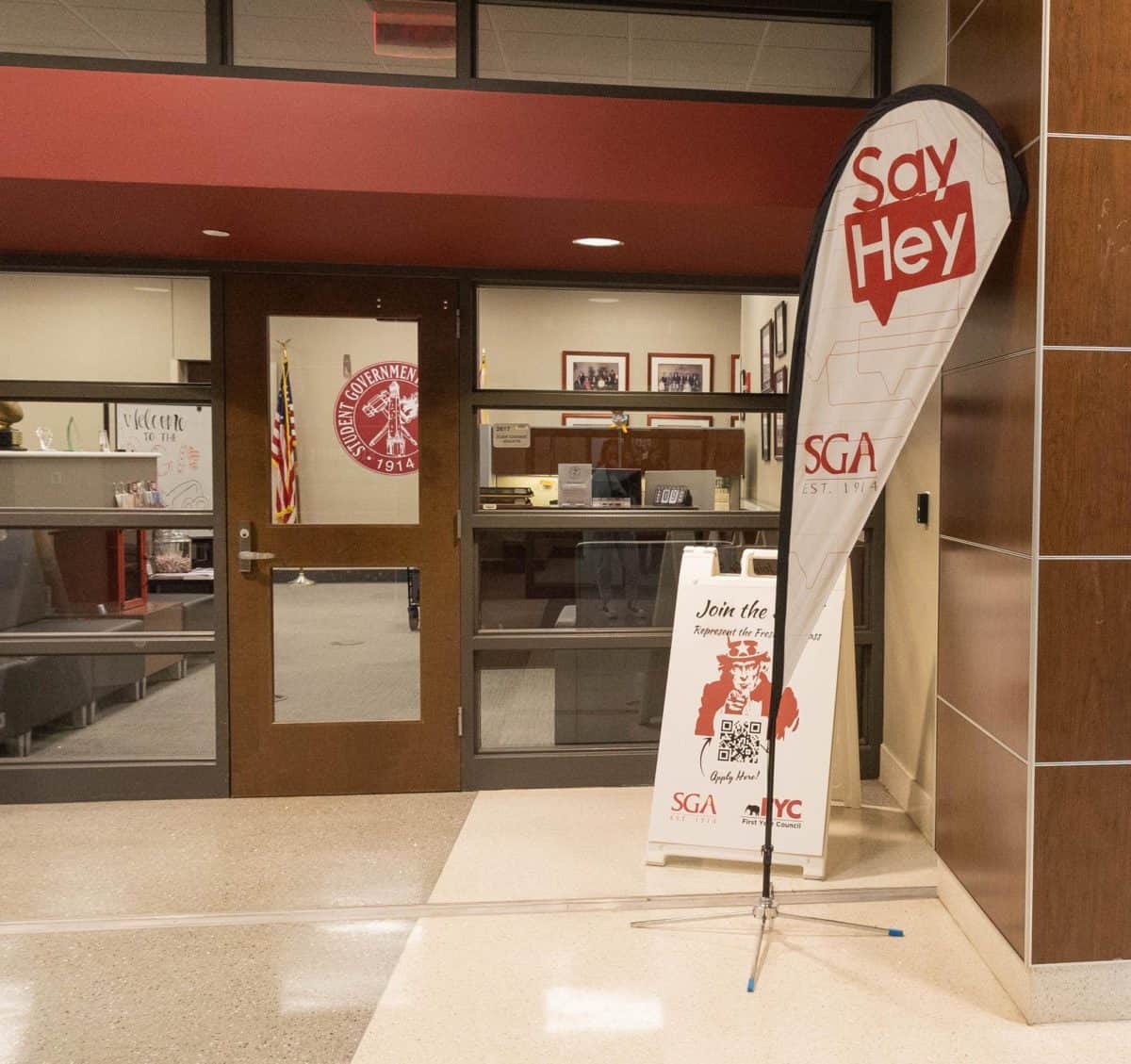Editor’s Note: This article has been corrected to accurately attribute comments made by Sen. Jack Sweda during Thursday’s meeting and include an accurate vote total.
For the second time, the SGA Senate voted against expanding the voting window of SGA elections from 12 to 48 hours, despite many student testimonies on Thursday.
The bill was previously voted down on Feb. 22, but after an appeal by SGA Sen. Sam Badger, the Student Judiciary ruled that proper procedures were not followed during that meeting. The Senate was ordered to reconsider the bill at its meeting Thursday.
“We strongly endorse legislation that expands our window to 48 hours,” UA Vote Everywhere President Rolland Grady said. “UA students deserve to be heard and seen by representatives.”
Jorge Koichi Ikeda-Sanchez, a sophomore majoring in anthropology and psychology, said before the vote that the SGA would be disrespecting the wishes of its constituents by blocking the expanded window.
“If you’re actively acting against the interests of the common people … then you are violating your mission,” Ikeda-Sanchez said.
Fourteen students crowded the forum, unanimously asking the Senate to lengthen the voting window. More than a dozen additional students waited to address the Senate in the overflow room, but several were unable to, as the SGA code of laws limits student comments to a total of 30 minutes.
Senators against expanding the window said that the SGA Elections Board wasn’t fully prepared to enact the expansion. Several senators also disagreed that an expanded window would increase voter turnout.
“Extending the voter window will only lead to a lower voter turnout,” Culverhouse College of Business Sen. Jack Sweda said.
Sweda cited the voter turnout at Louisiana State University, the University of Georgia, and the University of Tennessee. All three schools have longer voting windows than The University of Alabama but see lower voter turnout on average.
College of Communication and Information Sciences Sen. Sarah Clevenger also spoke against the bill. Clevenger said that College of Arts and Sciences Sen. Eyram Gbeddy, who authored the bill, hadn’t accounted for its potential effect on the Elections Board.
“We still have not heard anything said by the Elections Board asking us to make this change,” Clevenger said. “I believe there needs to be a sense of autonomy within the elections board considering that they are the ones controlling the elections that put us in our seats.”
After nearly two hours of discussion, the Senate voted down Gbeddy’s bill 34-9. College of Arts and Sciences Sen. Eleanor Israel motioned to reconsider the bill, saying she’d amend it to provide a 15-hour voting window. That motion failed 31-12.
Culverhouse College of Business Sen. Chloe Pickle said she voted against the bill because it needed more research and clarity on how it would affect the Elections Board. Pickle said she’d be in favor of a 15-hour window if those concerns were addressed.
The last time the bill was voted on, Pickle said that a 24-hour window would be a more reasonable alternative. Pickle also voted against Israel’s motion to reconsider the bill.
Gbeddy said that the Senate rejecting his bill indicates a broader trend of the SGA representing the interests of Greek-letter organizations rather than those of the entire student body.
“To do anything in SGA, to have a sure shot, you need to be Greek,” Gbeddy said. “It’s not about your qualifications; it’s about being in the right organization. That’s not how SGA is meant to work.”
Gbeddy has repeatedly alleged that the Machine told its Senators to block an expansion of the voting window. Officially known as Theta Nu Epsilon, the Machine is a select coalition of traditionally white fraternities and sororities designed to influence campus policies.
“The Machine thrives on a lack of voter engagement, and they’re missing out on the talents of 65% of campus minimum,” Gbeddy said. “Probably more like 80%.”
Gbeddy says that the only way for the majority of students to be heard is by exercising their right to vote.
“Ultimately, it’s about the student body. The student body has to come out and realize that the only thing stopping them from being represented are themselves,” Gbeddy said.















